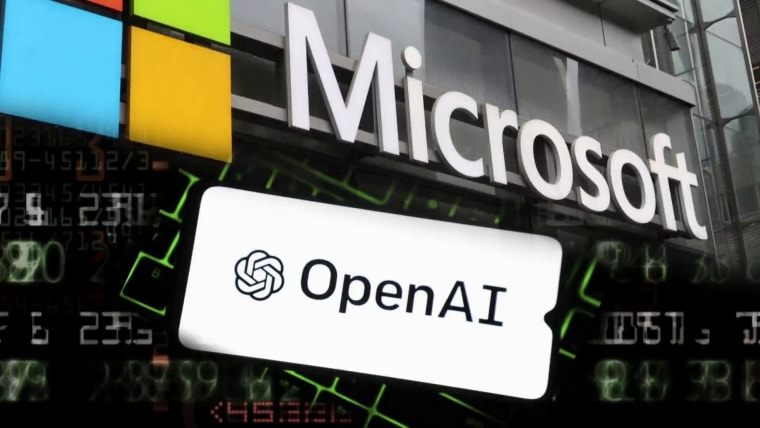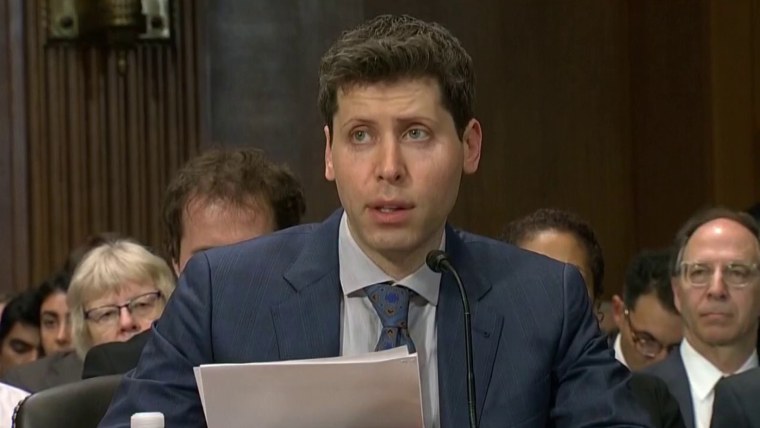The U.S. should require companies to be licensed by the government if they want to develop powerful artificial intelligence systems, the head of one the country’s top AI companies said at a Senate committee hearing Tuesday.
In his first appearance before Congress, Sam Altman, the CEO of OpenAI, the company that developed ChatGPT, said the U.S. “might consider a combination of licensing and testing requirements for development and release of AI models above a threshold of capabilities.”
Altman; Christina Montgomery, chief privacy and trust officer of IBM; and Gary Marcus, a professor emeritus of psychology and neural science at New York University, were witnesses at a hearing held by the U.S. Senate Committee on the Judiciary to discuss oversight of AI.
The rapid advancement of AI systems like ChatGPT has spurred many top technologists and academics to call for the industry to pause some development — and to ask for government intervention if that doesn’t happen.
But there’s little consensus on what broad regulations would look like, and Congress and federal agencies have struggled to figure out their role. On the eve of his testimony, Altman gave a presentation to about 60 lawmakers, wowing many of them and staying for nearly two hours afterward answering questions.
Rep. Ted Lieu, D-Calif., said Altman also did a demo of a version of ChatGPT, which some lawmakers had never seen before.
Unlike previous hearings with tech leaders like Facebook co-founder Mark Zuckerberg or TikTok CEO Shou Zi Chew, where members of Congress were at times openly hostile, senators were mostly congenial with Altman and Montgomery.
Sen. Richard Blumenthal, D-Conn., suggested that artificial intelligence models could be required to disclose what information they were trained on.
“Should we consider independent testing labs to provide score cards and nutrition labels or the equivalent of nutrition labels? Packaging that indicates to people whether or not the content can be trusted, what the ingredients are?” Blumenthal said.
Altman responded positively to the idea.

After Sen. Josh Hawley, R-Mo., suggested people might use AI as a source for trusted information, Altman again said he thinks the government has a role to play in regulating the technology.
“I do think some regulation would be quite wise on this topic,” Altman said. “People need to know if they’re talking to an AI, if content they’re looking at might be generated or might not.”
But Altman also said he believes that the public would learn to adapt to an onslaught of AI-aided false information and media.
“When Photoshop came onto the scene a long time ago, for a while people were really quite fooled by photoshopped images and then pretty quickly developed an understanding that images were photoshopped,” he said. “This will be like that, but on steroids.”
Marcus said that the AI industry is not far from leveraging the massive amounts of personal data that companies have on individuals to better exploit their tastes, even if OpenAI and IBM won’t do that directly.
“Hyper-targeting of advertising is definitely going to come,” Marcus said. “We will definitely see it. The technology is partway there to being able to do that and we’ll certainly get there.”
Some industry figures have called for the government to leave AI regulation fully to the companies behind the tech. Eric Schmidt, the former CEO of Google, said on NBC's “Meet the Press” on Sunday that “there’s no way a nonindustry person can understand what is possible.”
Marcus called for a Cabinet-level organization within the United States to oversee AI.
“The number of risks is large. The amount of information to keep up on is so much,” he said.
CORRECTION (May 16, 2023, 5:51 p.m. ET): A previous version of this article misstated Ted Lieu's office. He is a representative, not a senator.


